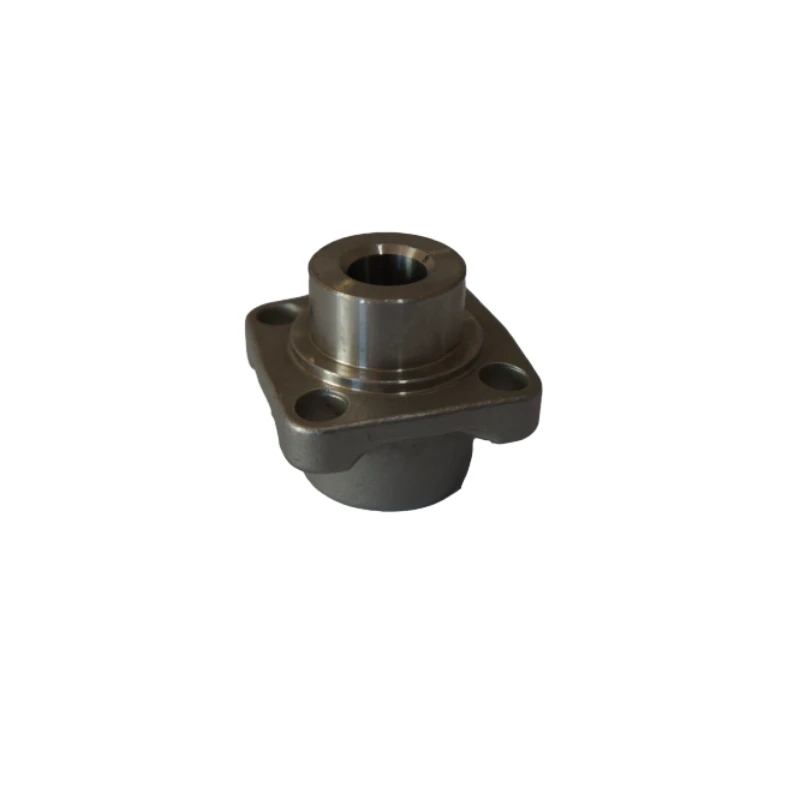Exploring the Properties and Applications of ADC10 Aluminum Alloy in Engineering
The Significance of ADC10% Aluminum Properties, Applications, and Advantages
Aluminum, a versatile and widely used metal, plays a crucial role in various industries due to its lightweight, strength, and corrosion resistance. One specific type of aluminum alloy that has garnered significant attention is ADC10% aluminum. This alloy, often used in die casting, combines the beneficial properties of elemental aluminum with various alloying elements to enhance its performance. In this article, we will explore the significance of ADC10% aluminum, its properties, applications, and advantages over other materials.
What is ADC10% Aluminum?
ADC10% aluminum is an aluminum-silicon die casting alloy that contains approximately 10% silicon. It is categorized under the A380 alloy family, which is known for its excellent fluidity, high strength, and good corrosion resistance. The addition of silicon in the alloy improves its casting properties, enabling it to fill intricate mold designs and produce complex shapes with high precision. The relatively low melting point of ADC10% aluminum makes it compatible with various casting processes, including high-pressure die casting.
Properties of ADC10% Aluminum
The mechanical and physical properties of ADC10% aluminum make it suitable for various applications
. Some of its key properties include1. Strength and Durability ADC10% aluminum exhibits high tensile strength, making it capable of withstanding mechanical stresses. Its durability ensures that it can be used in demanding applications without fear of structural failure.
2. Corrosion Resistance One of the standout features of ADC10% aluminum is its resistance to corrosion. This property is particularly important in industries where components are exposed to harsh environmental conditions.
3. Good Thermal and Electrical Conductivity The alloy's excellent conductivity properties make it useful in applications where heat dissipation is critical, as well as in electrical components.
4. Ease of Machining ADC10% aluminum can be easily machined and finished, which is a critical factor in production efficiency. The alloy can be subjected to various machining processes, including milling, turning, and grinding, with excellent results.
5. Lightweight Nature Comparing to other metals like steel, ADC10% aluminum is significantly lighter, which is a valuable trait in applications where weight savings are essential.
Applications of ADC10% Aluminum
adc10 aluminum

Due to its advantageous properties, ADC10% aluminum finds application in a variety of industries, including
1. Automotive Industry The automotive sector benefits from ADC10% aluminum in the production of components such as engine blocks, transmission cases, and other structural parts that require both strength and lightweight characteristics. The alloy aids in improving fuel efficiency while ensuring high performance.
2. Electronics ADC10% aluminum is often employed in the manufacturing of electronic housing and components due to its excellent thermal conductivity, which helps in managing heat generated during operation.
3. Aerospace In aerospace applications, weight reduction is paramount. ADC10% aluminum is used in fabricating parts that require high strength-to-weight ratios, contributing to improved aircraft performance.
4. Consumer Goods From machinery parts to household appliances, ADC10% aluminum is utilized in a myriad of consumer products that benefit from its reliable performance.
5. Marine Applications The corrosion resistance of ADC10% aluminum makes it a suitable choice for marine components, which are frequently exposed to moisture and saline environments.
Advantages of ADC10% Aluminum
The advantages of ADC10% aluminum over other materials are compelling
1. Cost-Effectiveness While high-performance materials can be expensive, ADC10% aluminum offers a good balance of performance and cost. Its efficient manufacturing process also drives down costs.
2. Environmental Sustainability Aluminum is highly recyclable, and using ADC10% can reduce the overall environmental footprint of products due to its lightweight nature and energy savings during transportation.
3. Customization The alloy can be tailored to meet specific requirements through variations in manufacturing processes, making it adaptable for a wide range of applications.
In conclusion, ADC10% aluminum is a remarkable alloy that combines strength, durability, and lightweight properties, making it indispensable in various industrial applications. Its suitability for die casting and its adaptability to diverse environments underscore its value in contemporary manufacturing. As industries continue to seek materials that meet both performance and sustainability criteria, ADC10% aluminum stands out as a leading choice for engineers and manufacturers alike.
-
Pros & Cons of Sand Casting: Products & ApplicationsNewsAug.19,2025
-
Advanced Crawler Drilling Rig for Confined Spaces-Baoding Hairun Machinery And Equipment Trading Co., Ltd.NewsAug.18,2025
-
Crawler Drilling Rig- Baoding Hairun Machinery And Equipment Trading Co., Ltd.|Pneumatic Power,Frame-Supported DesignNewsAug.18,2025
-
Precision OEM Valve Body Castings for Superior PerformanceNewsAug.18,2025
-
Crawler Mounted Drill Rig - Baoding Hairun Machinery | Underground Drilling SolutionsNewsAug.18,2025
-
Crawler Mounted Drill Rig - Baoding Hairun | Pneumatic Safety, Mining EfficiencyNewsAug.17,2025















